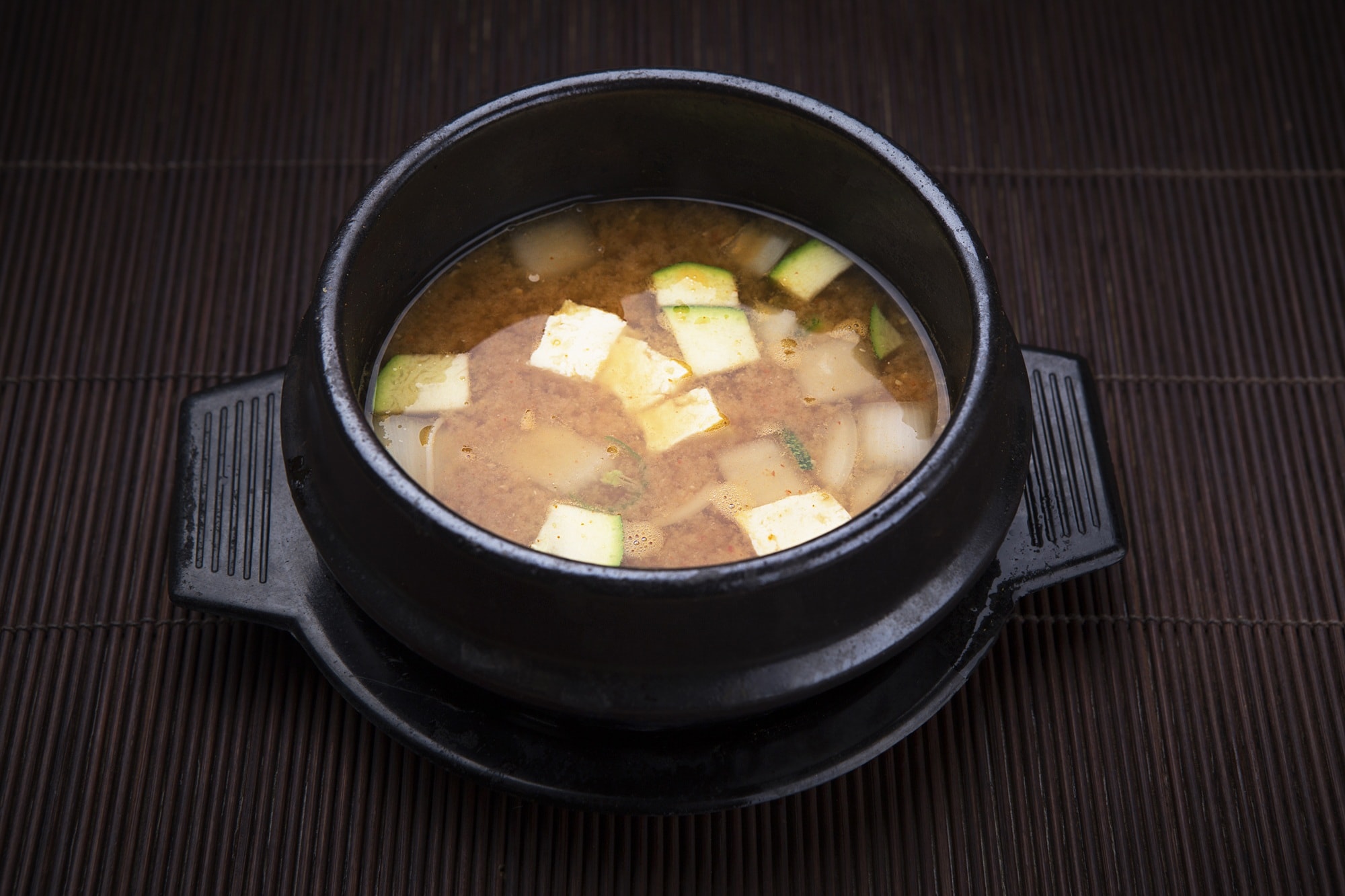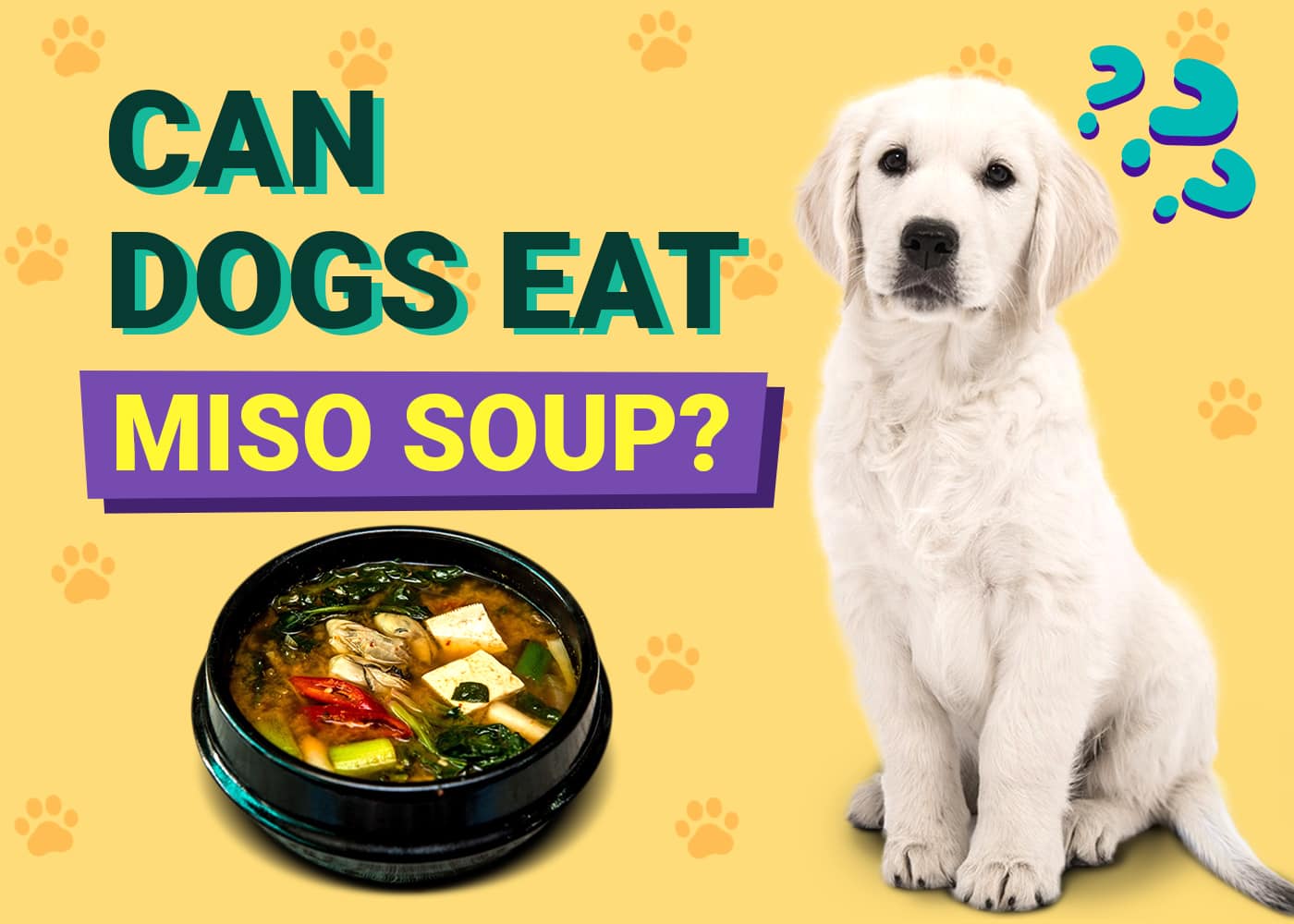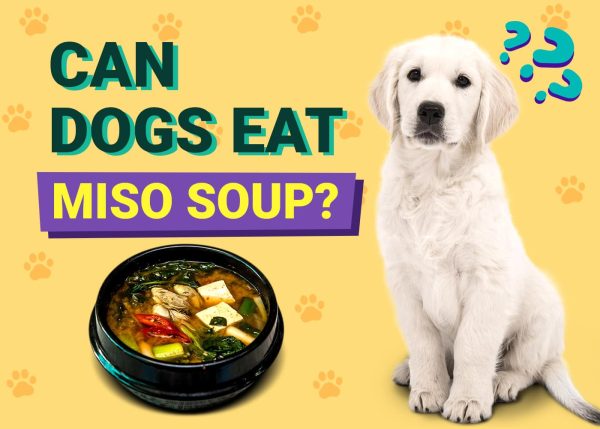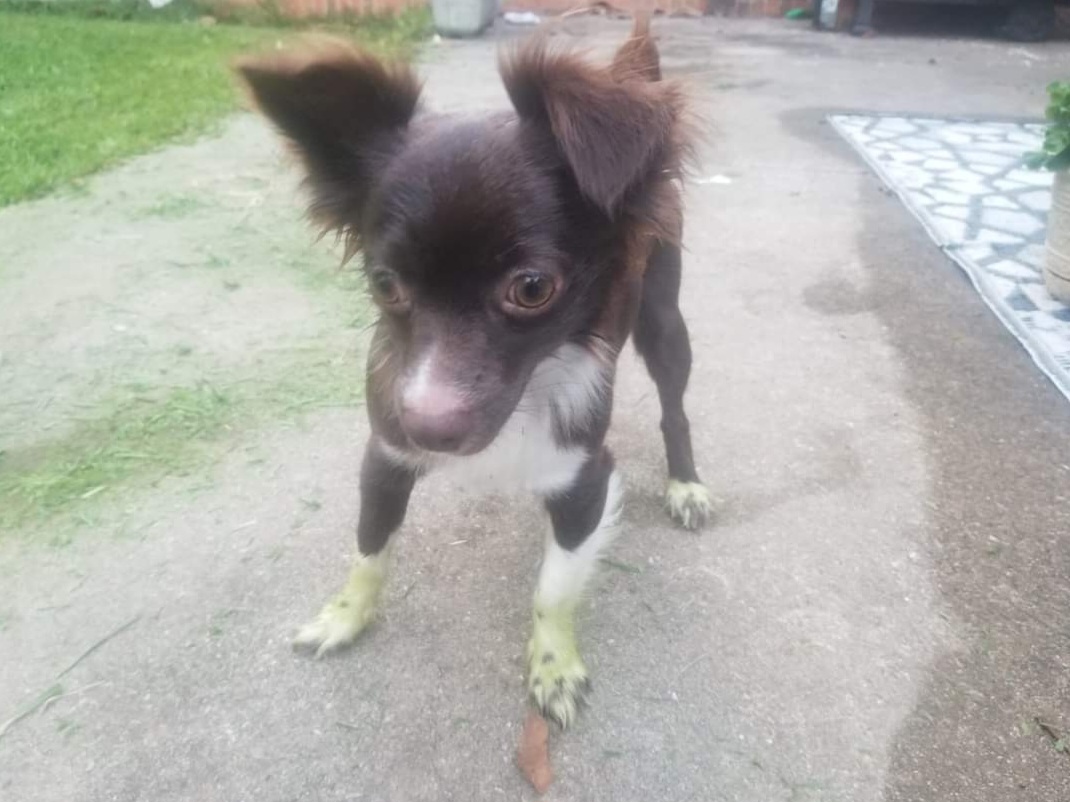Click to Skip Ahead
Dogs are more than just pets. Roughly 95% of owners consider their canine companions as members of their families, so it only makes sense that you’d want to share some of your food with your pup. Of course, some foods like garlic, onions, and chocolate are toxic and should never be given to your pet but you might want to know if you can split your miso soup with your dog.
While a little miso isn’t harmful, it’s not exactly healthy either. Let’s take a look at some miso soup facts and decide if your canine companion will get a taste.
Nutritional Value of Miso Soup
At its simplest, miso soup is a dashi-based broth. The dashi consists of dried fish and seaweed. Miso paste adds flavors from fermented soybeans, and is sometimes referred to as an” umami bomb” – a savory flavor that makes you want to keep eating more. A 100-gram serving is nearly 92% water, and contains 32 calories. It also has 2.5 grams of protein and 1.56 grams of fat. It provides a decent amount of potassium, choline, and vitamin K as well.

How Miso Soup Tastes to Dogs
Traditionally, there have been four classifications of taste: sweet, salty, sour, and bitter. Umami, the fifth element of flavor, was first recognised in Japan, and is the taste of amino acids. Interestingly, research has shown that dogs can taste umami. The extent to which it stimulates the nervous system is second only to humans. Nonetheless, that’s not a guarantee that canines will perceive these flavors the same despite the evolutionary links in our respective taste receptors. A genetic component between breeds also exists that can influence perception.
Of course, tasting also involves smelling. Dogs often sniff their food before they eat. Doing so enhances the experience for canines. It’s worth noting that they don’t have as many taste buds as humans, with about 1,700 compared to our 9,000. However, dogs have us beat when it comes to smell, with 100 million olfactory receptors to our 6 million.
These figures tell us that canines might have a genetic inclination to dislike soybean, and therefore miso, if it smells and tastes unpleasant to them, or doesn’t have a strong smell at all.
Red Flags for Miso Soup
Our discussion has focused on the plain broth. Miso soup often has other ingredients, such as green onions and garlic, which puts it in the “No” column. Several types of miso exist, using grains like barley and brown rice. It’s worth noting that grains aren’t bad for dogs. Evolution and domestication has changed their DNA to include genes to digest these foods.
Some types of miso contain hot chili pepper, which makes them inappropriate for any pet. After all, it’s one thing when you choose to enjoy the heat. Your dog probably won’t experience it in the same pleasurable way. On the other hand, a mild miso soup with tofu is all right, but it won’t provide a significant source of protein to make it worthwhile. However, another red flag exists.

The Problem With Sodium
A 100-gram serving of plain miso soup contains 613 milligrams of sodium. That amount far exceeds the recommended daily allowance (RDA) for canines. Dogs and other animals can handle excess to varying degrees, assuming the dog has access to plenty of fresh water to flush out the extra intake. The potential exists for mineral concentrations to get too high and lead to salt toxicosis. There is sodium inside and outside of the cells in the extracellular fluid around them. Problems occur when the body attempts to balance it.
Too much salt in the bloodstream can cause the cells to shrink. As the body rehydrates, it can cause the cells in the brain to swell, which is where the danger lies. Vomiting is one of the early signs of this condition, followed by seizures. Treatment is complicated for restoring the dog’s electrolyte balance, with a fair to poor prognosis if not treated immediately.
However, the sodium levels in miso soup are highly unlikely to result in these sorts of issues, unless given to a dehydrated animal, or has been made with additional salt.
Final Thoughts
The bottom line is that miso soup is safe for most pets. However, its sodium content and lack of nutritional value means you shouldn’t make it a regular part of your dog’s diet. We recommend sticking to your dog’s commercial diet for balanced nutrition, but if your canine companion gets a spoonful or two of your miso soup, there is no cause for alarm.
See Also:
- Can Dogs Eat Saffron Rice? Vet-Reviewed Facts & Safety Guide
- Can Dogs Eat Acorns? Vet-Reviewed Facts & Safety Guide
Featured Image Credit: JumpStory











